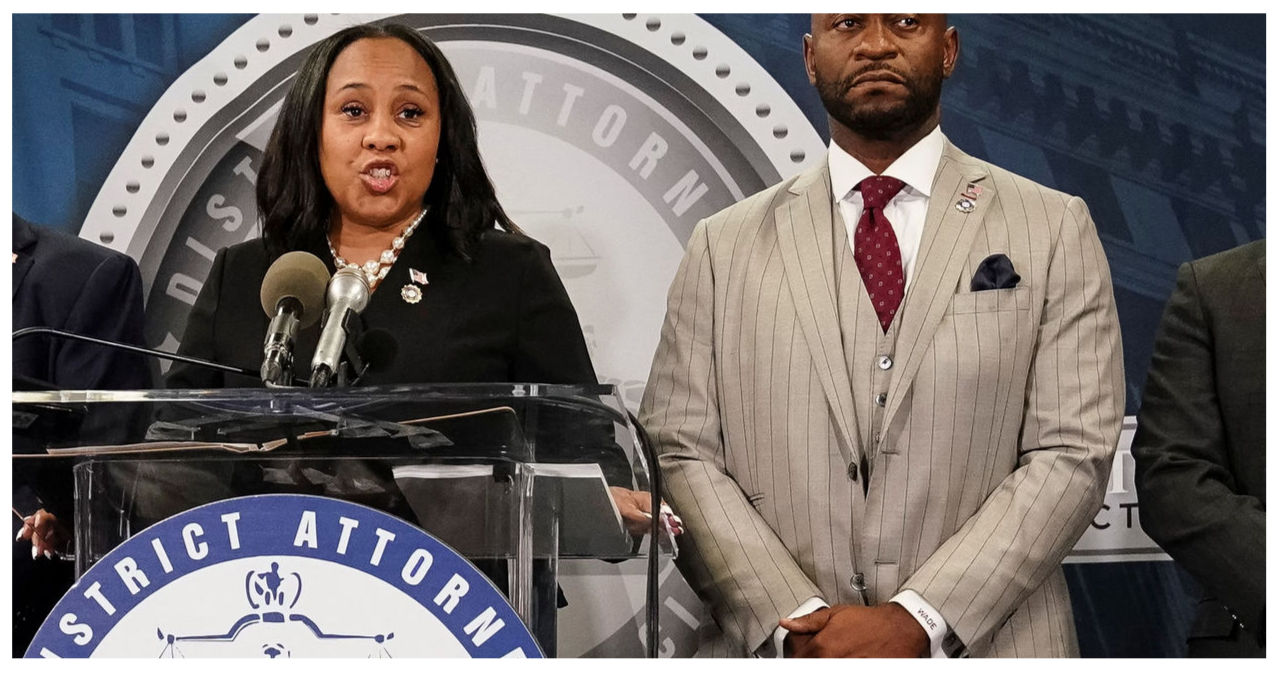Nathan Wade, the former Fulton County special prosecutor who was involved in the Georgia election interference case against former President Donald Trump, has finally broken his silence. This comes after his resignation from the case due to a public disqualification battle over his relationship with District Attorney Fani Willis.
Wade, who stepped down from the case last month after a judge’s ruling, admitted to having some regrets about the relationship. However, he firmly stood by the integrity of the case against Trump and other individuals, emphasizing its importance in moving forward.
“Workplace romances are a common occurrence in American culture,” said Wade in an exclusive interview with ABC News’ Linsey Davis. “It’s something that happens to people all the time, and it just so happened to happen to the two of us.”
Davis inquired if there was any regret.
Wade expressed his regret that the private matter took center stage in such a critical prosecution. He emphasized the significance of the case at hand.
“I’m frustrated that my personal life has started to overshadow the real issues in the case,” he expressed his discontent.
Additional parts of the interview will be broadcasted on ABC’s “Good Morning America” this Monday.
Wade resigned from the case shortly after Judge Scott McAfee’s decision. While the judge did not disqualify Willis outright, he acknowledged the significant appearance of impropriety due to their romantic relationship during the prosecution of the case. As a result, either Willis or Wade had to step aside from the case.
McAfee concluded that there was not enough evidence to support the existence of an actual conflict of interest.
Trump and the other defendants have appealed the judge’s ruling, with the aim of also removing Willis. The Georgia Court of Appeals is yet to decide whether they will consider the appeal.
Willis and Wade stated that they started their relationship in early 2022 and it lasted until the summer of 2023, following his hiring for the case in November 2021.
Davis inquired whether Wade had considered putting the relationship “on pause” until after the case, given the significance of the situation to democracy. Wade acknowledged that he had entertained the idea, but emphasized the intensity of his emotions.
Davis asked if, at a certain point when there is already a strong bond, and if democracy is at stake as previously stated, it would be appropriate to consider pausing the matter until after the case is concluded.
“Absolutely, absolutely. I must admit that could have been one approach,” Wade, who has now resumed his private practice, acknowledged. “However, when you find yourself in the midst of it all, these emotions begin to surface, and they become so intense that you reach a point where you start desiring actions that are truly beyond the public’s interest.”
Four defendants in the case have chosen to take deals and admit their guilt, while Trump and the remaining 14 defendants maintain their innocence by pleading not guilty. At this time, a trial date has yet to be determined.



